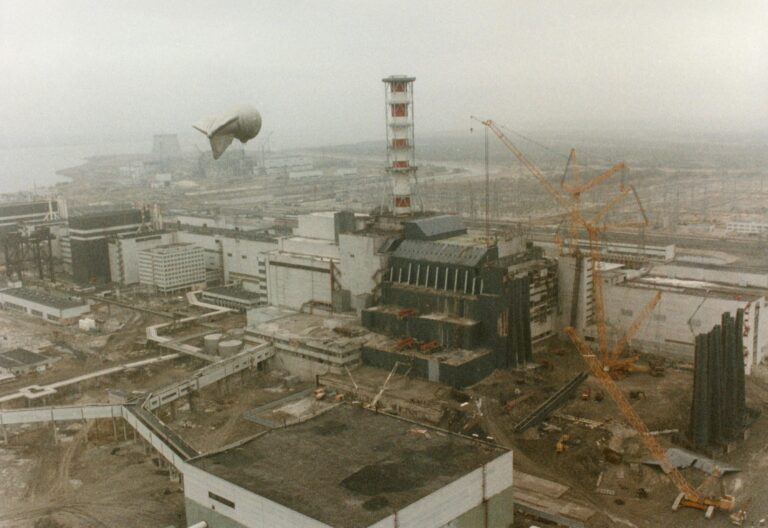A recent Russian air strike has caused a power blackout at the Chernobyl nuclear plant, raising international alarm over the safety of the site. According to reports from France 24, the incident disrupted the facility’s electricity supply, intensifying concerns about potential nuclear risks amid ongoing military tensions in the region. This development highlights the precarious situation surrounding Chernobyl, the site of the world’s worst nuclear disaster, and underscores the urgent need for stability and security in the area.
Russian Air Strike Triggers Power Outage at Chernobyl Nuclear Facility
Power disruptions at the Chernobyl nuclear facility have raised fresh concerns over the safety of the site amid ongoing conflict. Reports confirm that a recent air strike by Russian forces caused a full blackout, cutting off external electricity supply essential for the containment and monitoring systems. Although backup generators were activated immediately, officials warned of the heightened risks associated with prolonged power interruptions at a location where nuclear waste remains highly hazardous.
Emergency response teams swiftly restored partial power after the incident, but the blackout underscored vulnerabilities in the plant’s infrastructure during wartime conditions. Key points highlighted by experts include:
- Reliance on external power grids for critical cooling systems
- Potential threat to stored radioactive materials if outages prolong
- International calls for securing nuclear sites amid conflict
| Aspect | Status |
|---|---|
| External Power Supply | Disrupted |
| Backup Generators | Active |
| Radiation Levels | Stable |
| Restoration Time | Ongoing |
Assessing the Immediate Risks and Environmental Impact of the Blackout
The immediate fallout from the blackout at the Chernobyl nuclear plant poses acute risks that extend beyond the facility’s walls. Without power, critical cooling systems essential for containing residual radioactive materials faced potential shutdowns, raising alarms over overheating and possible contamination. Emergency generators activated to mitigate the power loss, but their limited fuel reserves underscored the fragility of the plant’s safety measures amid ongoing hostilities. Additionally, the interruption in electronic monitoring systems inhibited real-time data transmission, complicating assessments of radiation levels and structural integrity.
Environmentalists and experts have outlined several key concerns stemming from the outage:
- Compromise in radioactive containment due to cooling system failures
- Disruption to air quality monitoring that delays detection of hazardous leaks
- Potential soil and water contamination if residual waste storage is affected
- Impacts on regional ecosystems with radioactive exposure risks for flora and fauna
| Risk Type | Immediate Impact | Potential Outcome |
|---|---|---|
| Cooling System Failure | Overheating of nuclear waste pools | Radioactive leakage increase |
| Monitoring Disruption | Loss of real-time radiation data | Delayed response to hazards |
| Containment Integrity | Structural stress on facilities | Potential environmental contamination |
Urgent Calls for Enhanced Security Measures to Protect Critical Nuclear Sites
The recent Russian air strike that plunged the Chernobyl nuclear power plant into darkness has reignited global concerns about the vulnerability of critical nuclear infrastructure in conflict zones. Experts warn that even temporary blackouts at such sensitive sites could lead to catastrophic consequences, stressing the immediate need for robust security protocols and fail-safe systems. The attack serves as a stark reminder of how geopolitical conflicts can escalate risks to nuclear safety, demanding swift international cooperation to safeguard facilities that harbor radioactive materials.
Authorities and specialists are urging for enhanced protective measures that include:
- Comprehensive surveillance systems to detect and deter hostile activities
- Redundant power supplies ensuring continuous cooling and safety operations
- Rapid response teams equipped to handle emergencies at nuclear sites
A recent assessment table illustrates the urgent priorities for nuclear site security upgrades:
| Security Aspect | Current Status | Recommended Improvement |
|---|---|---|
| Power Redundancy | Limited backup capacity | Install multiple independent power sources |
| Surveillance Systems | Basic monitoring | 24/7 AI-driven threat detection |
| Emergency Response | Delayed mobilization | Rapid deployment units on standby |
In Retrospect
The blackout at the Chernobyl nuclear plant, triggered by the recent Russian air strike, has raised renewed concerns over the security and safety of one of the most sensitive sites in the world. As investigations continue, the international community is closely monitoring the situation, emphasizing the critical need to protect nuclear facilities amid ongoing conflicts. Authorities have assured that efforts are underway to restore power and assess any potential radiological risks, while calls for increased safeguards and diplomatic interventions grow louder.




